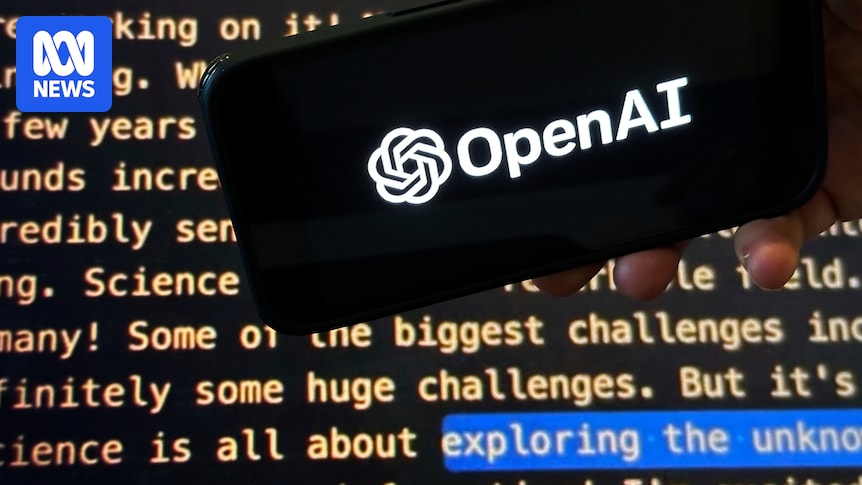OpenAI has introduced its own web browser, Atlas, putting the ChatGPT maker in direct competition with Google as more internet users rely on artificial intelligence to answer their questions.
Making its popular AI chatbot a gateway to online searches could allow OpenAI, the world’s most valuable startup, to pull in more internet traffic and revenue from digital advertising.
It could also further cut off the lifeblood of online publishers if ChatGPT so effectively feeds people summarised information that they stop exploring the internet and clicking on traditional web links.
AI chatbots could be accelerating loneliness epidemic
OpenAI has said ChatGPT already has more than 800 million users but many of them use the free version.
The San Francisco-based company also sells paid subscriptions but is losing more money than it makes and has been looking for ways to turn a profit.
Atlas launched on Tuesday on Apple laptops and will later be available for Microsoft Windows, Apple’s iOS phone operating system and Google’s Android phone system, OpenAI said.
Rare opportunity or uphill battle?
OpenAI chief executive Sam Altman called it a “rare, once-a-decade opportunity to rethink what a browser can be about and how to use one”.
But analyst Paddy Harrington of market research group Forrester said it would be a big challenge “competing with a giant who has ridiculous market share”.
OpenAI’s browser is coming out just a few months after one of its executives testified that the company would be interested in buying Google’s industry-leading Chrome browser, if a US federal judge had required it to be sold to prevent the abuses that resulted in Google’s ubiquitous search engine being declared an illegal monopoly.
But US District Judge Amit Mehta last month issued a decision that rejected the Chrome sale sought by the US Justice Department in the monopoly case, partly because he believed advances in the AI industry were already reshaping the competitive landscape.
AI is not always ‘100pc accurate’ but some still use it for financial advice
OpenAI’s browser will face a daunting challenge against Chrome, which has amassed about 3 billion worldwide users and has been adding some AI features from Google’s Gemini technology.
Chrome’s immense success could provide a blueprint for OpenAI as it enters the browser market.
When Google released Chrome in 2008, Microsoft’s Internet Explorer was so dominant that few observers believed a new browser could mount a formidable threat.
But Chrome quickly won over legions of admirers by loading webpages more quickly than Internet Explorer while offering other advantages that enabled it to up-end the market.
Microsoft ended up abandoning Explorer and introducing its Edge browser, which operates similarly to Chrome and holds a distant third place in market share behind Apple’s Safari.
Perplexity, another smaller AI startup, rolled out its own Comet browser earlier this year.
It also expressed interest in buying Chrome and eventually submitted an unsolicited $US34.5 billion ($53.2 billion) offer for the browser that hit a dead end when the judge decided against a Google break-up.
Sam Altman says he expects a chatbot interface to replace a traditional web browser’s address bar. (Reuters: Shelby Tauber)
Mr Altman said he expected a chatbot interface to replace a traditional browser’s URL bar as the centre of how he hoped people would use the internet in the future.
“Tabs were great, but we haven’t seen a lot of browser innovation since then,” he said on a video presentation.
A premium feature of the ChatGPT Atlas browser is an “agent mode” that accesses the laptop and effectively clicks around the internet on the person’s behalf, armed with the user’s browser history and what they are seeking to learn and explaining its process as it searches.
“It’s using the internet for you,” Mr Altman said.
Mr Harrington, the Forrester analyst, said another way of thinking about that is it was “taking personality away from you”.
“Your profile will be personally attuned to you, based on all the information sucked up about you. OK, scary,” he said.
“But is it really you, really what you’re thinking, or what that engine decides it’s going to do?
“And will it add in preferred solutions based on ads?”
Reliance on AI increasing
Since last year, Google has automatically provided AI-generated responses that attempt to answer a person’s search query, appearing at the top of results.
Reliance on AI chatbots to summarise information they collect online has raised a number of concerns, including the technology’s propensity to confidently spout false information, a problem known as hallucination.
First Nations fear AI ‘double colonisation’
The way that chatbots trained on online content spout new writings has been particularly troubling to the news industry, leading the New York Times and other outlets to sue OpenAI for copyright infringement and others, including the Associated Press, to sign licensing deals.
A study of four top AI assistants, including ChatGPT and Google’s Gemini, released on Wednesday showed nearly half their responses were flawed and fell short of the standards of “high-quality” journalism.
The research from the European Broadcasting Union, a group of public broadcasters in 56 countries, compiled the results of more than 3,000 responses to news-related questions to help ascertain quality responses and identify problems to fix.
AP

